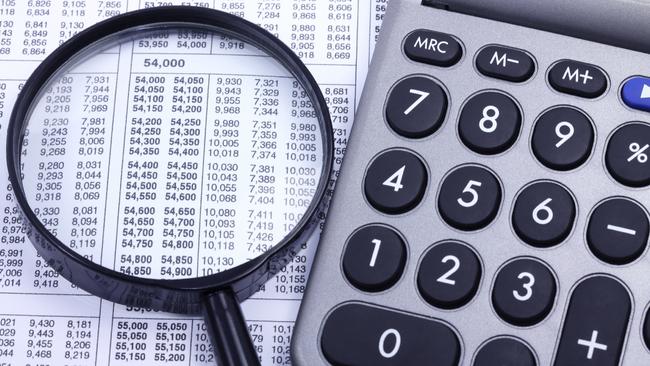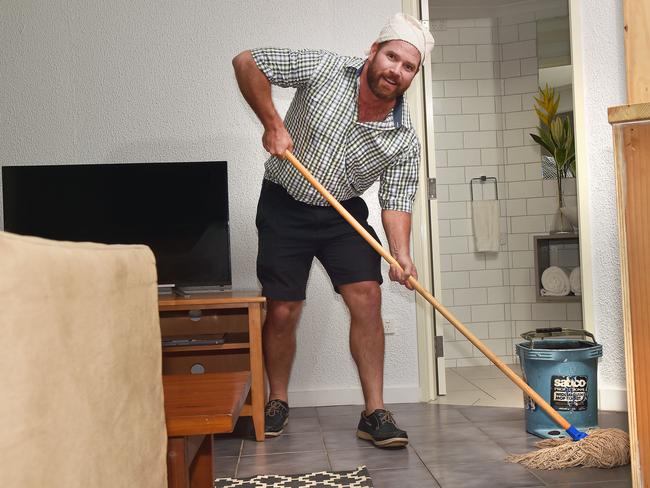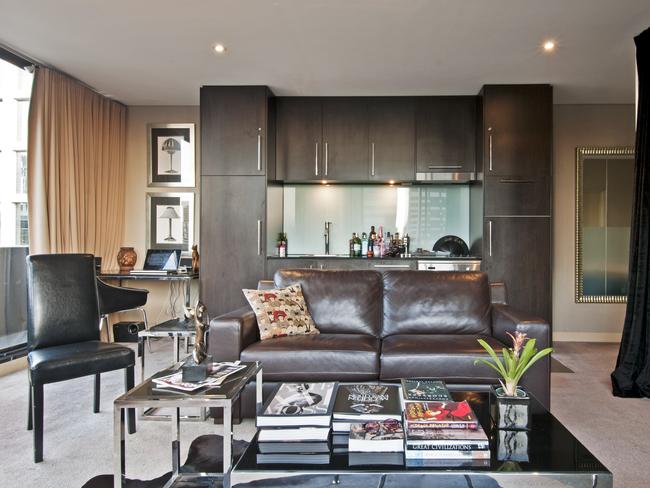Tax Office cracks down on sharing economy
HUNDREDS of thousands of Australians are using this to earn extra cash. If they’re not careful they’ll be punished.

THINK earning a bit of cash on the side is the way to go? Well, you could be in for a shock when the tax man comes knocking.
The ATO is cracking down on the $500 million sharing economy, where Airbnb, Uber and the plethora of other platforms allow hundreds of thousands of Australians to cash in on their spare rooms and parking spaces, lend their cars and drive people around town.
And what at first seemed like a quick and easy way to may a buck could become a lot more complex for those unfamiliar with taxation laws.
Last year, Uber was dragged kicking and screaming to its GST obligations, and the tax office warned its 20,000 drivers to declare their incomes or be audited and penalised before launching a data matching offensive.
Insiders say that Airbnb is next on the ATO’s hit list, with an educational campaign blitz expected to be followed by increased auditing of hosts of the 75,000 Australian properties currently listed on the home sharing site.
The sharing economy is shaping up to be a major player in Australia’s economy. Research by Deloitte Access Economics states that 53 per cent of Australian consumers “participated in some form of collaborative economy” last year, and 63 per cent planned to in the near future, as sharing becomes a more accepted way of doing business.
A growing number of players are turning over half a billion dollars a year, from Uber rival GoCatch to DriveMyCar, home storage site Spacer and meal-sharing app Feastly. And the tax office wants its piece of the pie.

CPA Australia Head of Policy Paul Drum warned that hiding income from the tax man was not only illegal, but incredibly risky in the digital age.
“The ATO can analyse transaction data almost at the flick of a switch now, just like they can crunch land tax receipts and ask ‘how can this taxpayer afford that property?’” Mr Drum said.
For example, he said, the amount of commissions Uber and Airbnb received from each ride or stay could easily reveal how much each driver or host would have earned over the financial year.
“This can all be data matched extremely quickly now,” Mr Drum said, adding that any issues with foreign-owned companies holding back data would soon be resolved by growing international co-operation in fighting corporate tax avoidance.
And while many people think that the tax office can only delve seven years back into a taxpayer’s records, Mr Drum said this was not the case.
“If you’ve been hiding out, which means you’re committing tax fraud and evasion, there’s no limit — they could make you back pay to whenever,” he said.
‘DECLARE EVERY CENT’
Mr Drum busted one of the biggest myths about sharing economy income: that you don’t have to declare sporadic or one-off transactions.
“There’s no threshold,” Mr Drum said. “The measure is ‘are you going about it in a business like way?’ If the room is available for rent, then income is income.”
Etax.com.au general manager Simone Gielis said the only exception to having to declare Airbnb income would be “if your total income from all sources is below the $18,200 tax free threshold”.
“Everything from the first dollar is considered taxable income,” Ms Gielis said.
The one thing Airbnb hosts don’t need to worry about is registering for GST, as residential accommodation is exempt. Uber drivers must pay GST on every dollar.
Property owners who rent out their spare room may also be unaware that they risk losing their capital gains tax exemption when they eventually sell up.
The tax office varies the exemption on a pro rata basis, depending on the amount of floor space rented out and the length of bookings.
Mr Drum said anyone planning to become an Airbnb host needed to factor this into their financial modelling, and work out whether the venture would be worth it in the long run.
On the upside, he said, hosts could claim deductions for expenses incurred throughout the year if a property was listed on Airbnb the whole time — even if they only got one or two bookings.

Airbnb hosts that news.com.au spoke to were unsure of where they stood with their taxes. One stated that she thought she would only have to pay tax if she rented her room out on a regular basis, while another had not yet calculated how much she would owe.
Paul Hart, a longtime Airbnb host who runs a peer support group for thousands of fellow hosts in Melbourne, said tax avoidance was a problem his community was determined to stamp out.
“Other hosts have said ‘it’s a bit of money on the side’ and I always tell them ‘the tax man is going to want to know about it ... Congratulations, you’re a small-business owner overnight.’”
Mr Hart, who runs his Airbnb income through his business and has his accountant keep track of earnings and expenses, said most fellow hosts were now doing the right thing.
“Airbnb’s too big now; the ATO is onto it,” he said. “In the three years since I’ve been running host get-togethers, it’s changed a bit. At the beginning, most people did the right thing but there were plenty of other hosts who would say ‘I can make money on the side’. They’re in the minority now.”
Airbnb spokesman Dylan Smith said the company “proactively advises our hosts to declare any income generated as a result of listing their property”.
Hosts are taken to a terms and conditions page when signing up to list their properties, which links to the ATO website and warns that users must take heed of all location regulations.
TAX ACCOUNTANT TIPS
Etax.com.au general manager Simone Gielis says sharing economy participants should follow these rules.
1. Don’t hide your earnings
Whether you use Airbnb or Uber to earn a bit of extra cash on the side or as your primary source of income, it all must be declared on your tax return. Track your income and be honest on your tax return. Those who under-report their income may end up owing back taxes and be hit with fines, penalties and interest charges.
2. Don’t spend it all
It can be tempting to count any extra money you’ve made through Airbnb or Uber as a freebie toward your rent, paying off your car, or even as an excuse for a shopping spree. But just as your income is boosted by your Uber driving or rental, so is the tax you’re required to pay. If you don’t set aside some of your earnings, it can be a nasty surprise at tax time. During your first year you should put aside at least 30, even 40 per cent of what you earn from the ‘sharing economy’ to be safe.
3. Keep track of your expenses
If you need to buy something to run your Airbnb or Uber, you may be able to claim a portion (or all) back at tax time. The key here is that you need to keep a record of your expenses in order to claim them.
4. Know what you can claim
If you are renting out a room or apartment, you can claim expenses and depreciation for the percentage of your house that was rented, for the duration someone was paying. This includes things like internet and phone costs, utility and council rates and deprecation of furniture. Ridesharing drivers can claim work-related expenses including insurance and registration costs, car maintenance, repairs and cleaning costs — and even mints, water and music streaming fees. In an Airbnb, you can consider claiming any additional extras, but the most important thing you should claim is the interest on your mortgage.
5. Know your obligations
It’s important to have an understanding of how the sharing economy impacts your individual tax obligations otherwise you could be in over your head. The golden rule if you’re unsure about your obligations, enlist the services of a professional tax agent.




